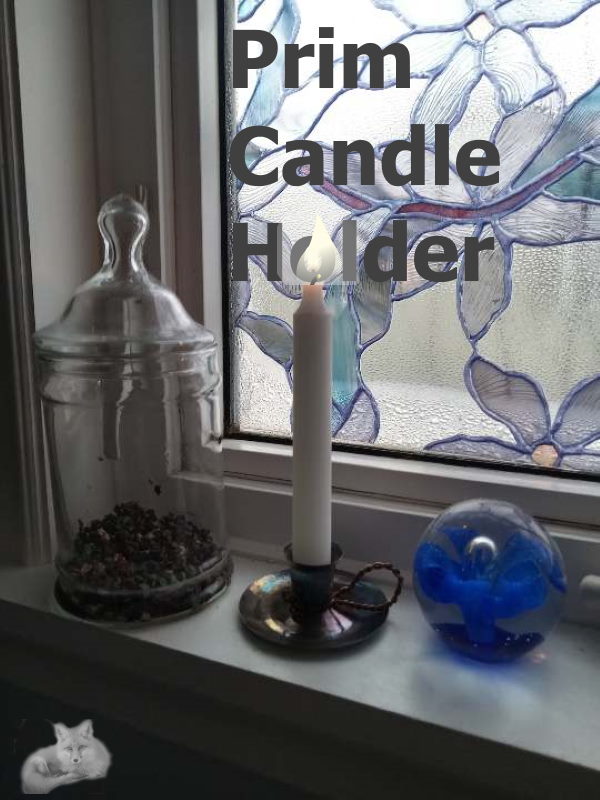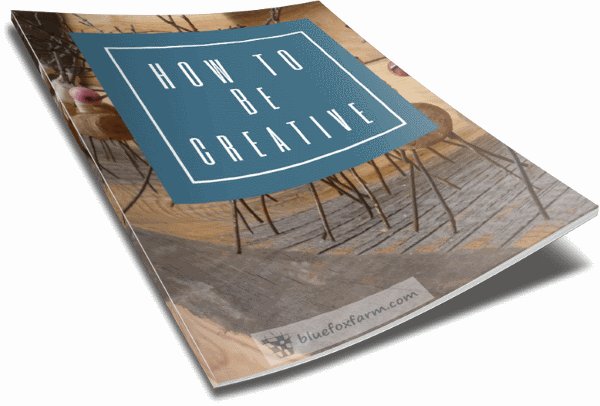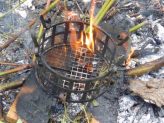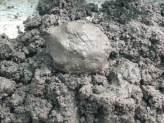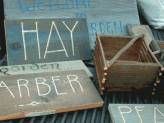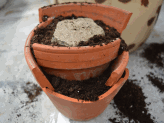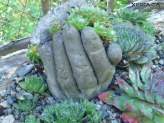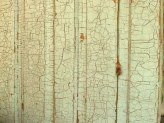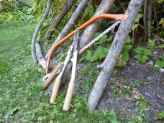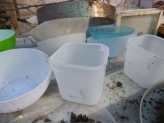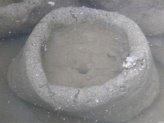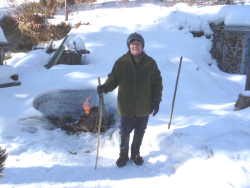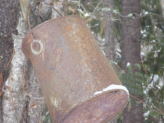Prim Candle Holder
Rusticizing Thrift Store Finds
During the run up to Christmas I stopped in at the thrift store on a routine shopping trip, and picked up a cheapie fake brass candle holder.
Initially, I thought I would leave it as is, but then decided to take it to the next level while waiting for the next storm and power outage.
A prim candle holder is a perfect little project to take on that won't need a lot of room to work on, in fact, I can do most of it on the kitchen island.
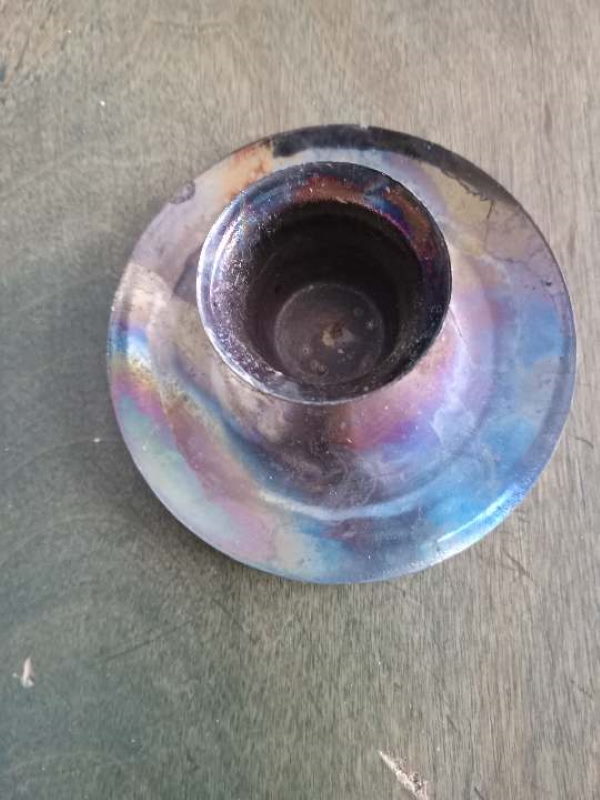 The result after burning in the bonfire
The result after burning in the bonfireI'll collect what I need while the outside portion of our program takes place.
Giving it a bit of a heat treatment in the bonfire changed the faux brass to a much more rustic appearing dull grey color, with a few little blueish areas.
This is typical of this kind of metal, and some of the things I've done the treatment on are the brass rings for canning jars, Christmas jingle bells in silver and gold, and the tops of canning jars as well.
The brass rings were used for jars of pot pourri, the jingle bells on a wreath, and the tops of the jars were used in the rustic fish scale shingles project.
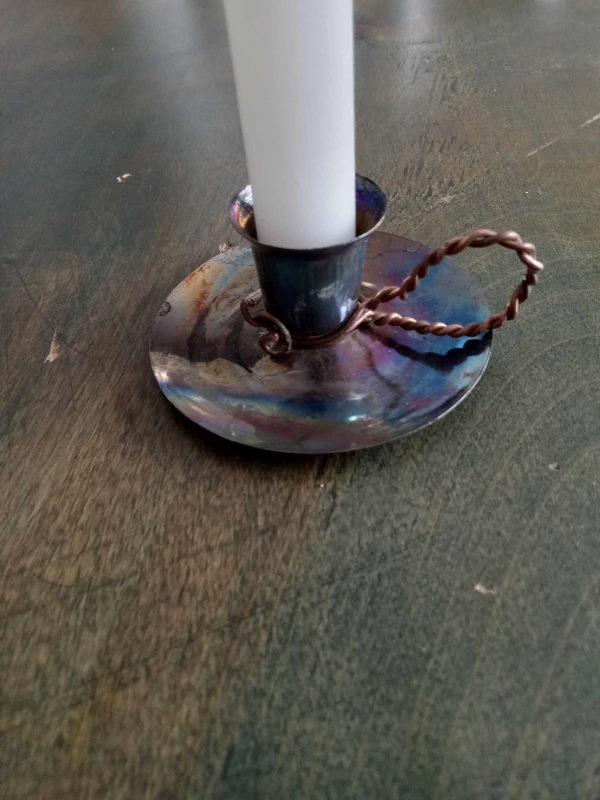 Copper wire handle, installed
Copper wire handle, installedThen the fun begins with this little candle holder. To make it even more primitive in appearance, I decided it needed a handle, so the copper wire came into play that has been carefully hoarded all the way across the country.
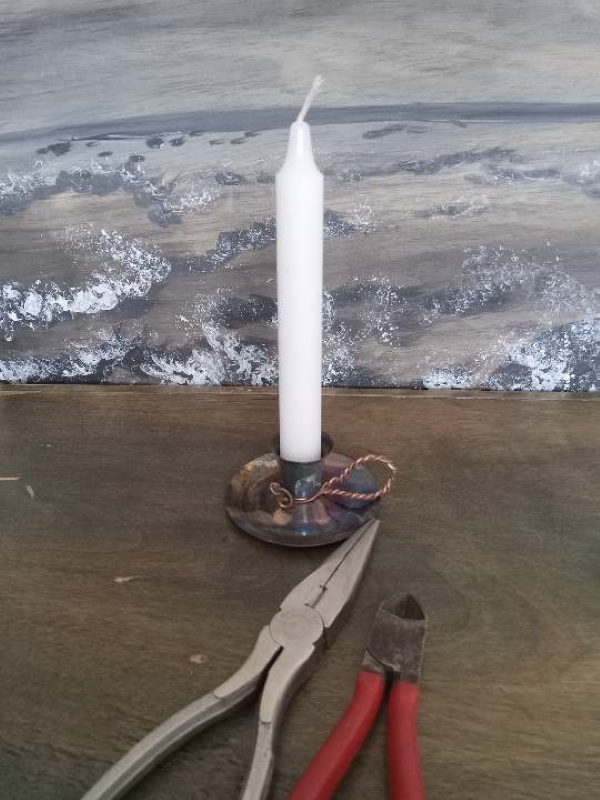 Primitive Candle Holder, showing two of the tools used in the making of the handle
Primitive Candle Holder, showing two of the tools used in the making of the handleThere are a few techniques that I like to go back to, every time I have the opportunity. One is the twisting of the wire, and another one is the use of pliers to make a pigtail.
In this case, using two of the techniques in my arsenal was a great way to start off the new year. January 1st, 2024 is the date for this project. Dipping in the toes in my new home means locating all my special tools, or finding replacements.
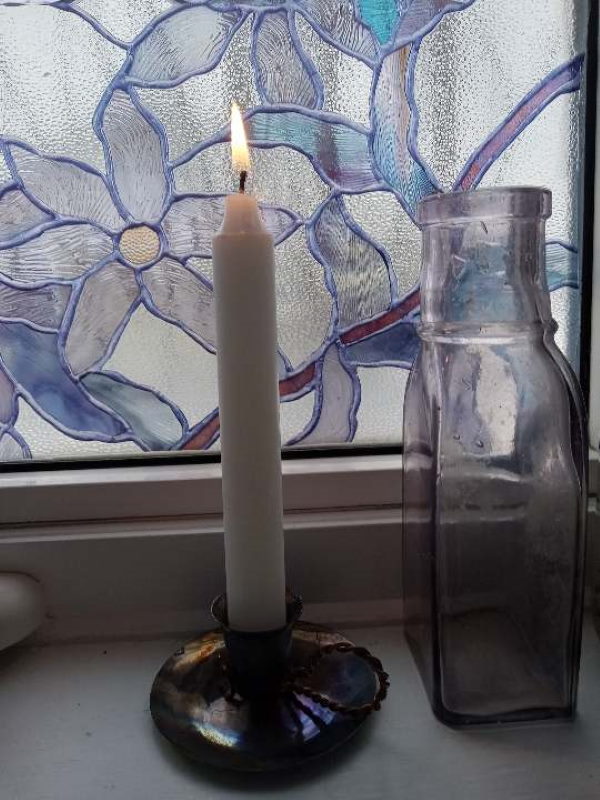 Prim Candle Holder, in use with the candle lit in front of a stained glass window.
Prim Candle Holder, in use with the candle lit in front of a stained glass window.The plan eventually for this little prim candle holder is to have bayberry candles burning in it, but for now, a white emergency candle will have to do.
Bayberry candles are traditionally burned on New Years Eve, and are believed to bring prosperity to the home if burned right to the end. Don't blow it out!
Learn what it takes to be creative - we all have the gene but how do we develop it? Get the free guide!
Fill in the form below for your copy;
(Don't be disappointed - use an email address that will accept the free download - some .aol email addresses won't.
If you don't see your download within a few minutes, try again with another email address - sorry for the bother.)
